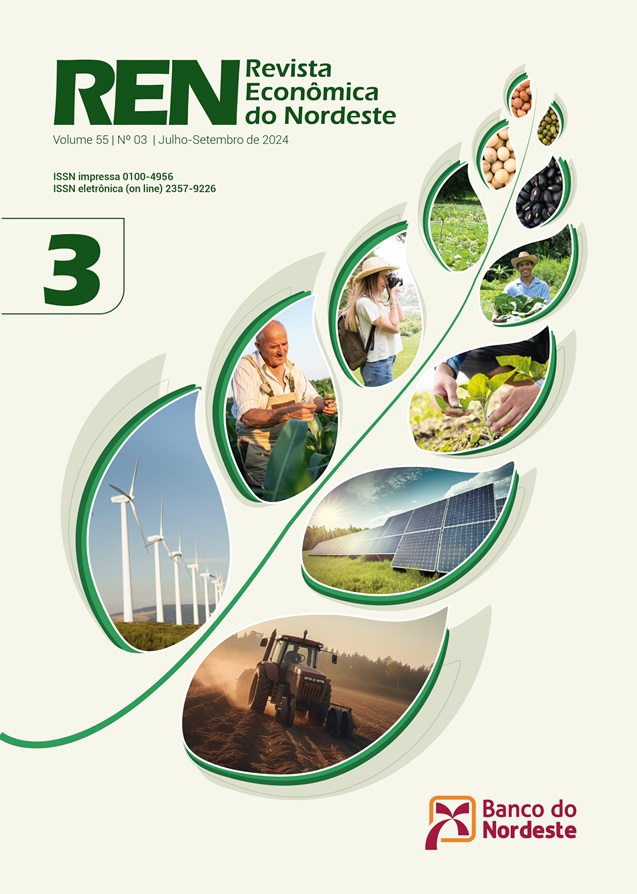THE USE OF ARTIFICIAL NEURAL NETWORKS TO QUANTIFY THE INFLUENCE OF CONSTITUTIONAL FINANCING FUNDS ON THE GENERATION OF FORMAL JOBS IN BRAZIL
DOI:
https://doi.org/10.61673/ren.2024.1528Keywords:
Regional inequalities in Brazil, Midwest Constitutional Fund, Job generation, Mato Grosso do SulAbstract
The constitutional financing funds that exist in Brazil are financing programs whose mission is to promote the reduction of socioeconomic inequalities between Brazilian regions and contribute to the development of the country as a whole. Constitutional financing funds are present in the North (FNO), Central-West (FCO), Northeast and municipalities included in Sudene's area of operation in the States of Minas Gerais and Espírito Santo (FNE). The general objective of this study was to analyze the influence of FCO transfer values to the state of Mato Grosso do Sul (MS) and the corresponding generations of formal jobs. For this purpose, annual historical series were used, from 2003 to 2018, of transfers from the FCO, the Gross Domestic Product (GDP) of MS, the stock of jobs and establishments created.An Artificial Neural Networks (ANN) model using this data was applied to the main sectors of the MS economy: Agriculture, Industry and Tourism, Commerce and Services. It was concluded that, in the period considered, the FCO generated direct and indirect formal jobs in these three sectors, with emphasis on Industry and Tourism, Commerce and Services and a small number of jobs in Agriculture.Downloads
Download data is not yet available.
Downloads
Published
2024-09-18
How to Cite
Pereira, E. B., Souza, C. C. de, Carneiro Júnior, J. B. A., Frainer, D. M., Castelão, R. A., & Souza, C. F. C. de. (2024). THE USE OF ARTIFICIAL NEURAL NETWORKS TO QUANTIFY THE INFLUENCE OF CONSTITUTIONAL FINANCING FUNDS ON THE GENERATION OF FORMAL JOBS IN BRAZIL. Revista Econômica Do Nordeste, 55(3), 62–79. https://doi.org/10.61673/ren.2024.1528
Issue
Section
Artigos
License
Copyright (c) 2023 Revista Econômica do Nordeste

This work is licensed under a Creative Commons Attribution 4.0 International License.








